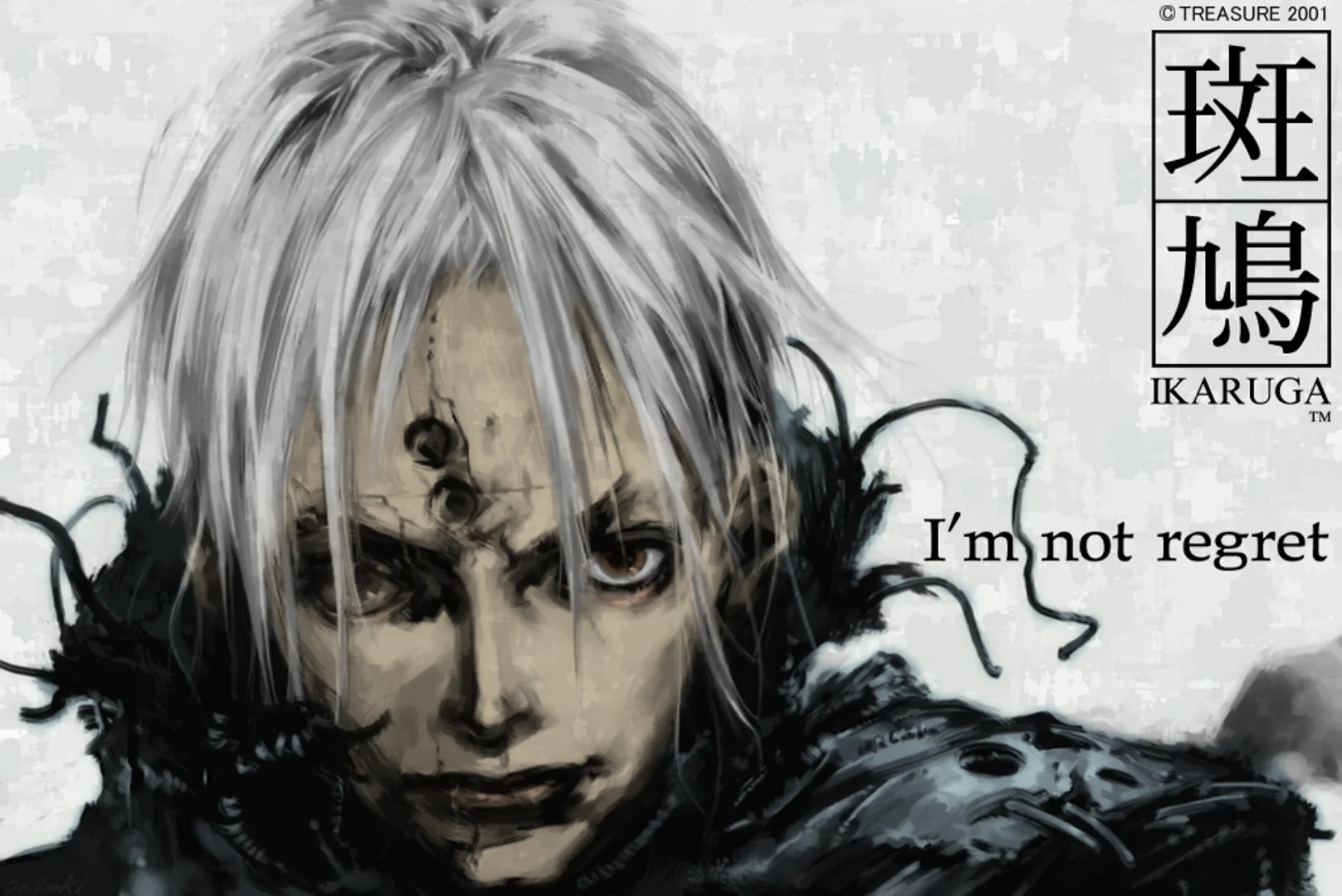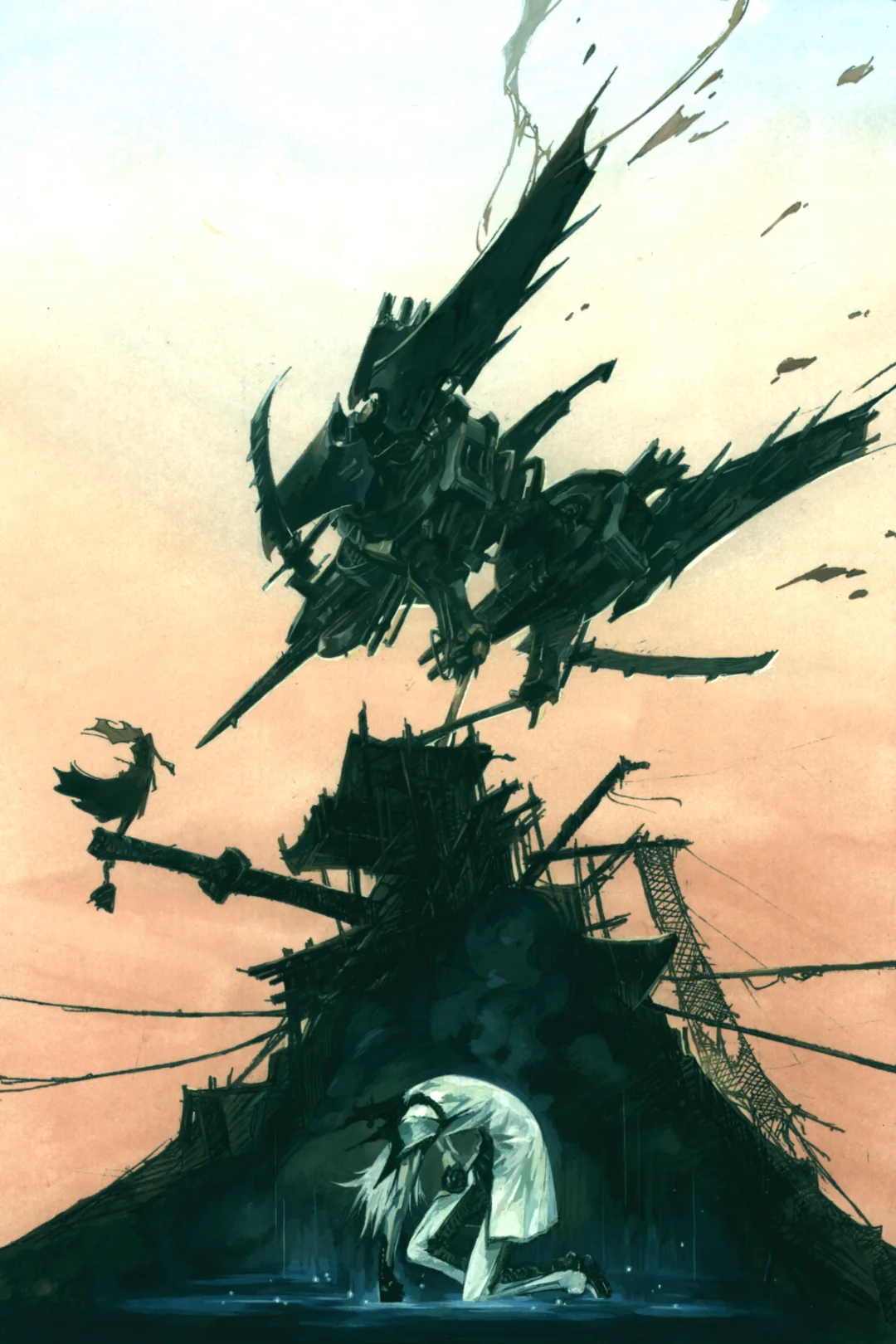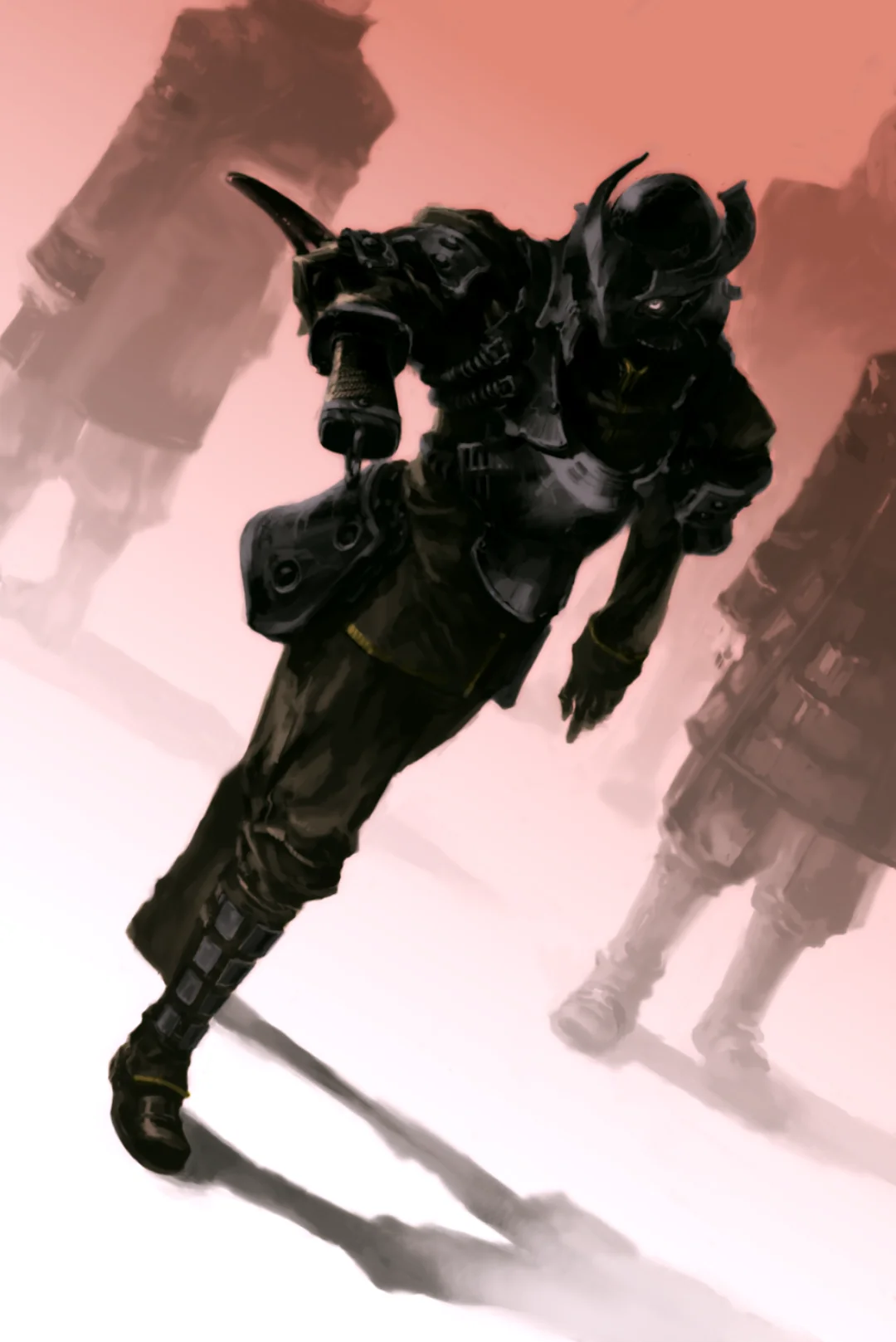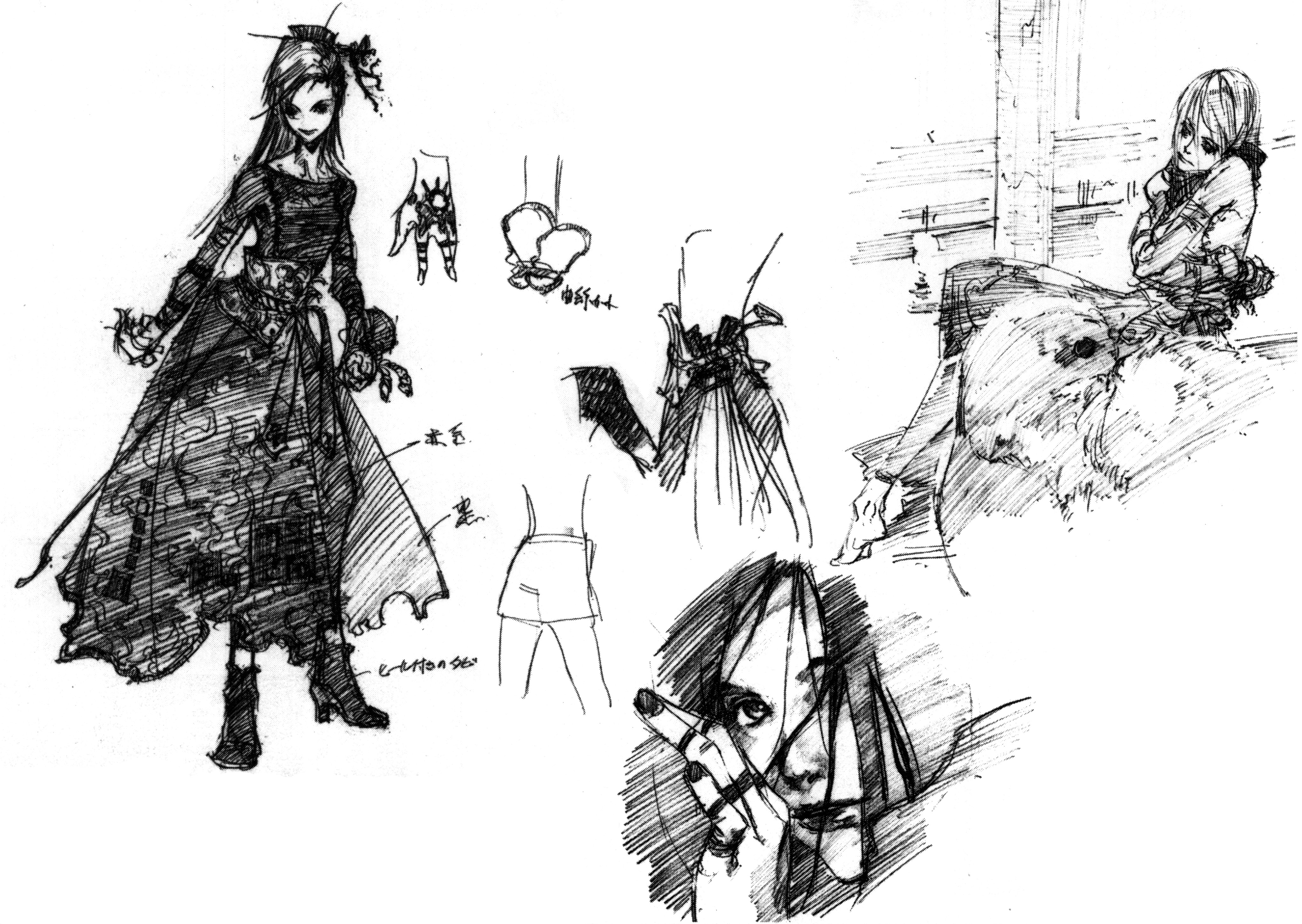Inspiration and YOU (and Me)
I've always seen myself as viscerally artistic. Even though every single action in my life from age 11 to now has been in preparation of doing weird number shit with computers, there was always some part of me that yearned to just put my heart into something that couldn't be simplified as being merely just a "product". I would imagine this being a result of how my early years were. I was always drawing. I was always writing. Was it particularly good? No. But really I've come to grips with a very liberating fact: that shit just doesn't matter at all. With the subjectivity of art you can't make everyone happy. Even if you're unhappy with the end product, maybe someone else will find infinitely more enjoyment out of it than you and, just as long as you put your own soul into it, that's all that matters. The issue is then finding something, anything to put out there. Although I've written dozens of stories in my head, I can't put pen to page. When I do, it just feels off. It's hard to capture the grandiose feeling of a daydream when it comes time to make sense of it. I've found these struggles of mind to be a call to find inspiration.
But where? Where can it be? Uhhh, newsflash idiot all around you. I can name a few things off of my head which moved me greatly just yesterday. Need I list them off?
- The way the clouds appeared in the sky as the sun began to slowly set, illuminating some while others appeared dim, leading to a beautiful contrasting scenery

- My dog, still suffering from separation anxiety from my dad leaving for a business trip, blocking the door with her trademark apathetic face when I tried to leave to go on a walk. I picked her up and moved her.
- The way deko_mori draws Nadeko's ass
- Ikaruga (2001)
I tricked you. I fucking tricked you. This is a blogpost about Ikaruga (2001). But actually, what it has done to warrant my inspiration, so I suppose it was a half-trick. Another big failure for me. I can't seem to win at all these days.

I'm not regret.
I replayed this game just a bit ago. Not long whatsoever, maybe about 20-25 minutes; please understand that this is a shoot-em-up, damn near a puzzle game as well (shmup nerds get really mad when you say this don't say this to them!); one designed so meticulously that it is impossible to master for just about everyone on the planet. From the time I first picked it up maybe 5-6 years ago, I knew I was not the person who would spend heaps of hours attempting to clear and then optimize every last section. I've learned to just appreciate for what it is. In short: "Radiant Silvergun's spiritual successor, minus the analogy for the fight for creative expression in the games industry, utilizing the same ludonarrative elements draped in Sanskrit writing and Buddhist symbolism in order to paint the picture of an impossible ordeal of a single individual being replayed ad nauseam, each failure indistinguishable from the rest, up until the ideal is achieved-- unable to be free until it was-- then being awarded the catharsis of a true death". Get that? In short(er): "Hiroshi Iuchi and TREASURE Co. Ltd. made this game for a fucked up white boy like me, but not to truly beat". Now that my little introduction is out of the way, I think I can finally get to the specifics of what makes this video game move me so much. Firstly however:
I'm not the type of person who makes heavy-fisted recommendations (except the times I threatened people's lives if they didn't listen to Bizarre Love Triangle by New Order), but maybe now would be a great time to get a little soundtrack going. Specifically, the soundtrack of Ikaruga (2001) itself, composed by Hiroshi Iuchi, the game's director. Also worth mentioning: This is his only credited musical work. Almost makes me want to open up a DAW and make Beat The Pussy Up White Boy type beats on the spot.
Lastly, I would like to thank [Name redacted on the behalf of my legal representatives at the Workingmen's Party of California]'s blog for inspiring this idea in the first place. Think of Iuchi-san's inexperience in composition blossoming into some interesting tunes being the first bullet point in the long line of stuff that makes me lowkey tear up a little. So why not walk down this line a little more?
Let's start briefly with the gameplay. It's nonstandard for its genre. It's certainly not danmaku, nor is it something like Battle Garegga or Darius. Instead the game implements a "polarity system", you switch between white and black and fire at enemies of those same colors. If you kill an enemy of the same type it fires revenge bullets directly at you, on top of dealing less damage than you would if you were to be of the opposite polarity. You absorb these bullets if you're the same polarity, die otherwise. Absorb enough and you can fire off a homing laser barrage. Hit 3 of the same type to increment a chain and exponentially improve scoring, which grants you extra lives. Simple and effective. All 5 stages are designed to wring out every last ounce of potential out of this system. Cascades of enemy types (and bonus hordes if you're quick enough to kill them), physical obstacles, lasers, and moving stages encompass most of the hell of Ikaruga (2001). Taking all of that into consideration, the bosses seem to be the least of your problems in the end. Each element of each stage is static, so there does exist a set path or a "formula" you can follow in order to maximize scoring. The issue is always execution. If you want to play like a world record holder, you need their meticulous execution as well, not happening STUPID. So, as per usual with shmups, it is a matter of survival first. Everything else is a close second. You only start with 3 lives after all, and it is extremely difficult to get extra through scoring. What makes Ikaruga (2001) stand out from other games of its genre I've played is how quickly things can just completely fall apart for you. After you learn what you're doing you soon establish a rhythm. God forbid you lose it somewhere.
You can only clear the screen upon death. No bombing, and ESPECIALLY no deliberately dying in order to decrease your game rank to make shit easier. You're expected to pick up exactly where you were, making sure you don't blindly fire just to get annihilated again the moment your iframes expire. I'm gonna be real, I could never do this. By stage 4 it always just seemed to fall apart. There is no worse feeling in the world than thinking that it's clicked for you, and then it just hasn't. If anything, you were substantially worse than before, and now a minor readjustment requires reconstruction of your approrach at a fundamental level. Really, what I'm trying to say is fuck this game. There is deliberation in its cruelty. Let's talk about it.
I previously mentioned Ikaruga (2001)'s symbolism as the main driver behind its narrative. This is because the truth is that there really isn't much of one to begin with. The game's story is provided in cryptic messages at the start of each stage-- the English TL doing you no favors-- it is near nonsensical. Outside of that, you'd be hard pressed to find anything in-game which provides a clear synopsis or anything of the sort, save for a prologue included in some ports and an actual narrative, albeit small, hidden away in the root of the Japanese Dreamcast disc (navigate to "X) Extras").

Fixed English TLs for each of the stage intros. If you can't see it, it's because I hotlinked this directly from shmups.wiki, whose SSL certificate expired a few months ago and has not been renewed since.
To attempt to justify this feeling of "deliberation", I feel as if its important to look at the way Radiant Silvergun handled its own narrative despite sharing a plethora of elements with Ikaruga (2001). None of what I will show was present in the game's original arcade release but its unironically bad anyway.
You boot up to a long opening cutscene akin to the sloppiest of 90s OVAs. It outlines the whole deal rather straightforwardly: the 産土神黄輝ノ塊 (Golden-Glowing Stone of the Birthplace Deity), the common antagonist of the two games, has just annihilated all human life on Earth. The stone acts like a judge for humanity, when it reaches its breaking point, it does as was described-- only leaving a small sect of human life to allow humanity to rebuild-- so basically a biblical apocalypse. The stone is God, and this process of it cannot be broken. You as the protagonist alongside your crew embark on a quest to, naturally, break it. The game's story mode advances it via narration and communications between you and your crew members. Your crew members sacrifice themselves as you progress closer to the stone. Only you alongside your chopped huzz and intelligent robot companion remain as you face it. Upon the death of the stone, everyone appears to have died, everyone except for that robot, which works to resuscitate you and the huzz, allowing for the final cycle of the stone to complete. So it's Adam and Eve. Awesome!
WRONG! Somewhat. Iuchi-san strongly implied that Radiant Silvergun's true meaning is hidden within the voices echoing in the final act of the game. You can find what he means by this here. I make of it that he feared the overbearing nature of the corporate force in game development eventually leading to the industry imploding on itself once more as a result of them "not knowing their history".
From this we can establish that the story of Ikaruga (2001) and Radiant Silvergun essentially operate in the same way, in a cycle. Where Silvergun utilizes it for a complex metanarrative, Ikaruga (2001), although abstract, attempts to use it more conventionally to tell a story of human preserverence bringing forth peace. This is where I find it to be particularly special.
The stone's role in this story is shifted to be a tool of mass destruction by an insane psychic by the name of Hourai Tenrou, whose army begins subjugating the rest of the world. You, as Shinra, are the only fighter left in a resistance against this force. As described in the game's prologue, Shinra dreamed of the eventual transmigration of his soul following his crash landing into the village of Ikaruga. Soon finding an ally in Kagari (player 2), the two embark on their final mission: to destroy the stone. But we know it's never that simple, because your dumb ass is holding the controller! But it is through your preserverence, this failure, this denial of catharsis as a one man army which puts reason to your eventual success in liberating the world from this entity, but only at the hand of self-sacrifice.
But it wasn't just the transmigration of Shinra, alongside the male figure who appeared before him in his dream and in his demise was a female one; Kagari would be joining him as well. At the climax of Ikaruga (2001), the world survives at the cost of the life of a man and woman. In death, however, they see "freedom", transmigration into another vessel, just as you survived the stone in Radiant Silvergun. The difference is that the world survives. In mutual understanding between the two, they've guaranteed the succession of life into future generations.
You don't want to hear me talk about this. How about that art?

Ikaruga key visual drawn by the game's artist Yasushi Suzuki
Yasushi Suzuki is an incredible artist. He worked with Treasure previously with Sin & Punishment (another one of my favorite games of all time) and eventually its sequel. He incorporates a lot of vibrant colors in complex scenes and, in the case of the art for Ikaruga (2001), still finds a way to make them look gritty.

Drawing of stage 2 boss "Kira". You don't actually see him at all, he's in that torta of a ship, but he got love anyways. Deserved it. He looks cool as fuck
I can't just upload and display all of it here, but there's a gallery by someone whose compiled all of the official artwork. Take a look. Although Suzuki's designs appear extremely hard to translate cohesively into 3D, it was done well enough to allow for its aesthetic to flourish through the hectic gameplay. I'd imagine a style like his to be a blueprint of mine when it comes to flesh out the identity of any artwork I end up creating myself, but you know what Mike Tomlin said about Antonio Brown returning to the Steelers.

Design sketches for Kagari
If you're interested in his further work, there exists a LQ scan of an artbook of his on e-hentai, but by all means buy that shit if you can and most importantly want to. He also did the Japanese covers for A Song of Ice and Fire which I mean scans of that art are so easy to find I'm not even gonna hold your hand on that one.
So what can we take out of all of this? I love Ikaruga (2001). I cannot stop thinking about Ikaruga (2001) in many aspects. Ikaruga (2001) is my A1 inspiration on what I want to express through art. I don't even want to draw little girls anymore man. Let me weave together cryptic Buddhist narratives. Let me make a bullshit video game that nobody can beat. Let me not have a real job. I won't give up even if my Ideal isn't fulfilled. My will, just as my regrets, won't ever die.
FULFILL IDEAL






